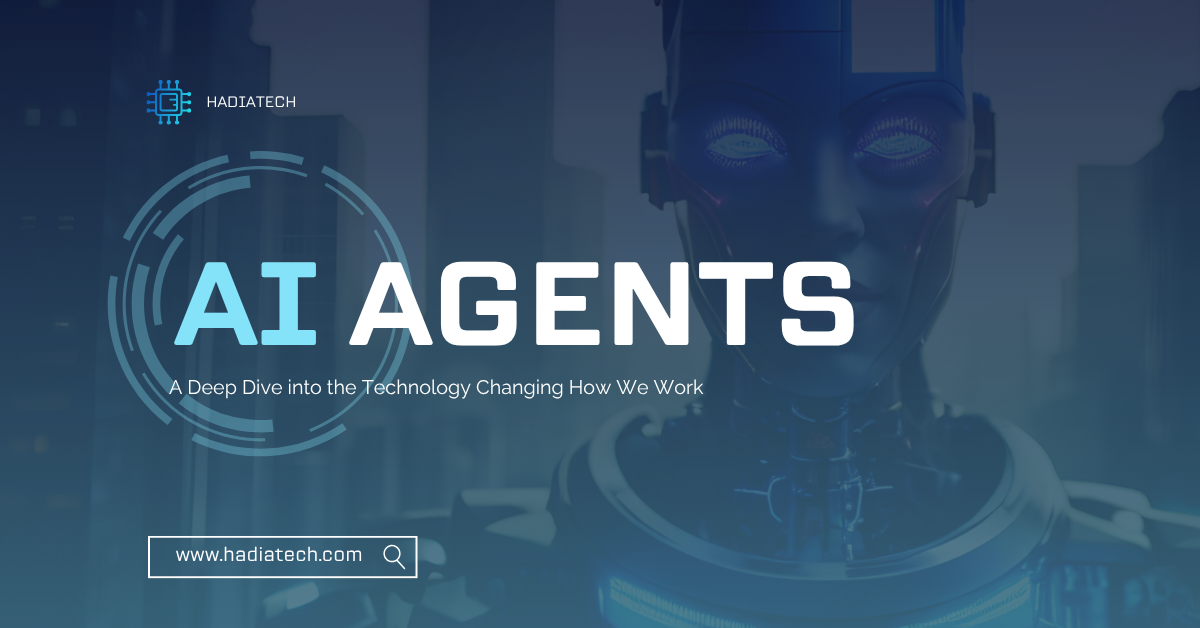What is an AI Agent? A Deep Dive into the Technology Changing How We Work
In recent years, artificial intelligence has evolved beyond basic automation and chatbots. We’re now entering the age of AI agents — intelligent digital assistants capable of reasoning, planning, and even making decisions on our behalf. These aren’t just fancy scripts or reactive bots. AI agents are more like digital coworkers, built to handle tasks autonomously and intelligently.
But what is an AI agent, anyway? How do they operate, where are they deployed, and what does this do to the future of work, business, and life in general?
Let’s learn.
What is an AI Agent?
At its most fundamental, an AI agent is simply a machine system that sees its world, creates something, and then acts in a manner such that it arrives at accomplishing some objective. Consider being an application element of software capable of perceiving, reasoning, acting, and learning — normally in real-time.
As a contrast to rule-based programs, a one which acts on them is learning is an AI agent. It acts in response to novel input or varied conditions. Scheduling flights, reading legal contracts, sorting through your letters — these agents have been coded to reason and respond accordingly.
Kinds of AI Agents
There are a host of disguises for AI agents based on complexity and application:
Simple Reflex Agents
These react to existing inputs. E.g., an instance of a reflex agent is a room warming thermostat — it does not learn.
Model-Based Agents
They employ internal representations to model their action on the world. Using an example of a chess programme making pre-emptive inferences in advance.
Goal-Based Agents
They are agents who react to goals. E.g., a direction-finding app computing minimum distance to be able to reach your destination.
Learning Agents
These are the most sophisticated. They learn and get better with time from information, results, and feedback — just like humans through experience.
How AI Agents Really Work
- Behind the scenes, AI agents run on a stack of technologies:
- Machine Learning: Allows agents to get better at their task by learning from patterns in data.
- Natural Language Processing (NLP): Enables agents to read and understand human language.
- Reinforcement Learning: Allows agents to learn by trial and error.
- Computer Vision: Allows agents to interpret images or video, if needed.
All these come together to make agents that can be used to apply to messy worlds — such as planning your schedule, simulating something, or responding to customer inquiries.
Applications of AI Agents in the Real World
AI agents are no longer experiments. They’re already causing ripples:
1. Customer Support
Advanced agents currently manage live chat, troubleshooting, and even passing cases — wear and tear-free. They are able to recognize tone, categorize questions, and customize responses.
2. Healthcare
Certain AI agents assist physicians in deciphering medical histories, pointing out abnormalities, and recommending diagnoses. Other agents assist patients themselves with monitoring health and reminders.
3. Finance
In finance, agents assist in detecting fraud, automating reports, and even giving investment advice based on market trends.
4. Personal Productivity
Email triage bots or AI scheduling assistants are becoming digital sidekicks — improving focus, saving time, and reducing mental load.
5. Software Development
AI agents now debug, test, and write code. Agents such as GitHub Copilot or automated dev agents are revolutionizing how engineers work.
The Emergence of Multi-Agent Systems
One agent is potent, but aggregated agents are where the fun begins. Those kinds of systems — multi-agent systems (MAS) — can exhibit emergent behavior, coordinate activity, and address grand challenges.
Visualize a delivery drone fleet, each flying autonomously yet also in synchrony for optimization. Or an array of AI assistants managing logistics between departments in a corporation. Such digital control is already pilot-tested in supply chains, autonomous vehicles, and intelligent cities.
Advantages of AI Agents
- 24/7 Availability: AI agents do not require rest or breaks.
- Scalability: Deployed once, they can perform thousands of tasks simultaneously.
- Cost Savings: Businesses have reduced manpower expenses on mundane work.
- Increased Accuracy: AI agents minimize human error, particularly in process-based activities.
- Personalization: They learn user preferences over time and provide a more personalized experience.
Weaknesses and Challenges
- They are exciting but far from flawless. Some of the primary challenges include:
- Data Privacy:It process sensitive information. Strict data protection legislation is necessary.
- Bias and Fairness: An agent will be just as biased as the training set.
- Overreliance: Humans can rely too heavily on agents and lose useful skills.
- Transparency: Perhaps it will be difficult to comprehend why an agent decided something in a large system.
- Regulation and ethics are behind, but these are ongoing issues.
The Future of AI Agents
We’re just scratching the surface. In the next few years, expect to see agents evolve into true digital collaborators — not just task-doers, but strategic thinkers.
In art-related careers, agents will assist in designing websites, editing videos, or even developing ad ideas. Agents can assist in offering personal tutoring according to the personal learning capacity of the individual student in schools. In science, they will accelerate research through experiments and results computation day and night.
Firms are already putting money into this future already, and in the short term agents will be pervasive agents across all domains — just like we use search engines or smart phones today.
Final Thoughts
AI agents are a paradigm shift the manner in which humans engage technology. These machines aren’t hardware devices; they’re evolving into intelligent associates — ones able to learn, reason, and even make decisions.
No matter if you’re a business leader, programmer, or just a reader, it pays to know about agents. The more we learn about them today, the better we can build a future in which artificial intelligence and humankind can thrive together and ethically.





